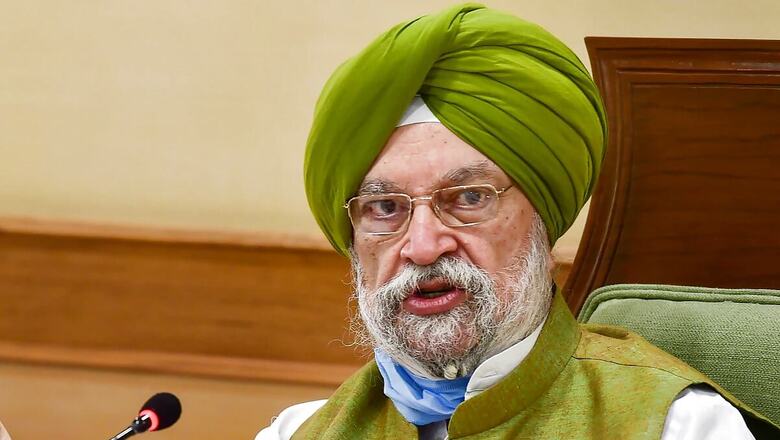
views
A debate around the Katchatheevu issue has bubbled up in Tamil Nadu’s and India’s politics just ahead of the Lok Sabha elections after Prime Minister Narendra Modi on Sunday lashed out at the Congress over the Indira Gandhi government handing over the disputed island to Sri Lanka in 1974. In an exclusive and exhaustive interview with CNN-News18 on Wednesday, union minister Hardeep Singh Puri, a former diplomat who was also posted in Sri Lanka, explained the history, context, and politics behind the controversy. Edited excerpts:
What is your understanding of this issue of Katchatheevu?
Some of the members in the opposition are saying why raise a 20-30-year-old issue. This is actually a 50-year-old issue…Lakshmi (wife) and I served in Sri Lanka during an eventful phase when former Prime Minister Rajiv Gandhi had worked out the India-Sri Lanka agreement with President Jayewardene…I remember this issue and I have done some reading on it, because the event relates to 1974, and that was the year I joined the Indian Foreign Service. So I recall at that point of time…of asking how, why, with whose approval. I think we’ve forgotten about it…The issue boils down in my view to the nature of decision-making 50 years ago. You had the DMK in power in Tamil Nadu and the Congress at the Centre…The party in office in Tamil Nadu in 1974, point a; point b, 2024, the DMK is in power in Tamil Nadu. The DMK issued its manifesto on 20th of March…paragraph 27 says ‘reclamation of Katchatheevu’…Approximately 200km from Katchatheevu, the Kulasekarapattinam rocket launch site is located. Measures will be taken…to reclaim Katchatheevu to ensure India’s security and protect the welfare of fishermen…Basically, they want to go into the elections due shortly with the plank of taking back Katchatheevu.
So the question arises, what was their attitude in 1974? I will read out to you two short paragraphs from the record of discussions of the then foreign secretary Shri Kewal Singh with the then chief minister of Tamil Nadu Shri M Karunanidhi, whose son MK Stalin is today the chief minister…He says, on the substance of the proposal, the chief minister indicated that he was inclined to accept the suggested solution and we will come to the suggested solution in a while. His difficulty was, however, that he could not take the opposition into confidence without sharing with them the knowledge about the oil strike and convincing them about the need to accept a compromise.
We are not going into whether the compromise is good or bad. That’s not the issue. He wanted to know whether the Prime Minister had sounded the opposition. Foreign secretary said that to his knowledge, the proposal was known only to one or two senior cabinet ministers and that probably Prime Minister would like to have the views of chief minister of Tamil Nadu before discussing it with the other opposition leaders.
So, we have a classic situation here. A civil servant who was a foreign secretary goes as emissary of the Prime Minister, the late Smt. Indira Gandhi ji, to Chennai, then Madras, and tells the chief minister, here we have a proposal that involves a compromise. I can go into the substance of it if you like. The result of which is that the international maritime boundary will be looked at in such a way that the Katchatheevu island will fall into the Sri Lankan waters, number one.
Number two, now he says the chief minister having once again signified his general acceptance of the suggested solution said that for obvious political reasons he could not be expected to take a public stand in favour of it.
In 1974, you didn’t take a public stand on it. Today you are in your manifesto saying that you want to take it back. This is the short point. They agreed to something that the central government led by the Congress party by the late Shrimati Indira Gandhi suggested to them, and then they go to para 15 to say something even better. The chief minister, however, assured the foreign secretary that he would help keep the reaction low-key and would not allow it to be played up. What does it mean? It means in essence that the DMK was a party to the decision. We are not going in the good or bad of it, but it was a party to the decision. It collaborated with a central government in order to try and retain and subdue the public reaction, which was going to come. This is the crux of the point. And the central government played along. This is just Katachatheevu.
In 1956, the government of Ceylon headed by a Prime Minister called SWRD Bandaranaike, passed the Sinhala Only Act, the starting point of all the problems of Tamils in Sri Lanka. There are two kinds of Tamils. The Plantation Tamils or Indian Tamils there, and the Jaffna Tamils. They started immediately…it affected their language…they became second-class citizens. But what happened in India? If you were such great champions of Tamils, you should have done something to pursue their interest. But Pandit ji, and I am not blaming him, I’m merely saying that because of his lack of full understanding, he welcomed the Sinhala Only Act. When we served in Colombo, and I’m talking about the year 1984 December to 1988, when I was there, I was a political counsellor, very often at the high commissioner’s residence, Shrimati Bandaranaike in response to questions asked by different Indian diplomats or the press…that was a time when Sri Lankan ethnic crisis, problems of Tamils was at a high. There were Colombo riots in 1983. There were other problems, when the LTTE began operating and became very large, and other Tamil groups were also there…and very often her answer would be, which is also recorded in books…She would say if this would happen in my time, I would call my sister, that being Indira ji, and tell her to look the other way while I sorted out the problem.
All I’m saying is let’s not bring in subterfuge in this. No, we gave up this and that, we did this in 76, there were fishing rights, etc. This is not about fishing. But whether it helps you or not, we are not going into the substance of the discussion, but we are saying that there is at the very least a misrepresentation of facts here because the then DMK government leader actively collaborated with this decision to hand over Katchatheevu.
This has come out as a result of the RTI and I read out to you the paragraph 15 and 16, which means then they were saying something, and today they’re saying they want Katchatheevu back. Have they today acknowledged that they were a party to this before?
We are getting into the deliberate creation of a false narrative in order to mislead people, and I have my learned and many of my retired senior colleagues who are not even serious students of history…
One of the explanations given, and would you agree…Mr Chidambaram is saying that the exchange of six lakh Indian Tamils happened, so that settlement came through. The other part is the DMK says that yes, we may have agreed, but in principle, we were promised by the Congress that the fishing rights will not go away. The fishermen would continue to be able to tread those waters.
Please tell DMK that you work out your internal dynamics. What did you agree to in public? When did you link these two…produce the document on what was supposed to come. Then we can ask the question to the Congress. But you know you can’t make private deals on something like this. My question is in 74 when I was in the foreign service was simply this: my understanding of the Indian constitution is that if you want to do something on territory, you have to seek Parliament’s permission. Is that correct or not? Now whose permission, if the then foreign secretary is saying that the prime minister has not even consulted more than one or two ministers and the leader in Tamil Nadu is saying that he cannot publicly take or bring the opposition in, so they were trying to do something.
Now the extent…I’ve been around too long, I’m too old…India is a strong country and can defend itself. We are merely talking about what I think is a highly regrettable stage in our relations with a South Asian country where whatever you did, right or wrong, I’m not even getting into…2015 RTI replies…how does it say…this was not in the public domain…Today, it’s in the public domain…We are talking here about the limited point about the Katchatheevu decision.
But what does it do today? Why bring it up now? Yes, these documents have become public. The question being asked is has it been structured with a political intent because 25th of March or 6th of March he applies for it, within six or seven days, the RTI is automatically answered. Why is this being done and what’s the point of this?
Tamil Nadu politics is one issue. If somebody has got these facts and wants to bring it out, that the individual or a party can say. I am personally welcoming the facts coming out. At least now we can have a balanced and more comprehensive understanding of what happened. Are we going any further than this. All I’m saying is stop producing a false narrative. The man is reacting to paragraph 27 of the DMK manifesto issued as late as 20th March. So when did he go on the RTI? Tell me that. Whenever he went, 20th March, they have put this in there in their manifesto.
The question of what we want to do is not relevant. You ask the DMK that you wanted to give it away back then, but now you want to take it back. That’s a question that should be asked to them. They are turning it around on the central government…the central government had nothing to do with this. This central government, the BJP government led by the honourable Prime Minister, has on a number of occasions bent over backwards to help that country. I am associated with the ministry petroleum and natural gas. Do you want to know how much we helped them during this energy crisis? I can’t remember, I think $4 billion…Here we are doing this. It’s not as if we are picking on a small country. We bailed them out when other things were not falling into place. I don’t want to go into the geopolitics, how much does the Chinese influence plays the role? What happened to Hambantota, the Colombo port, etc?
This is a narrative correction. Tamil Nadu which is such an important state. PM is one of the most active and strong supporters of Tamil linguistic and cultural…You know all this Tamil Sangam, Kashi, and Saurashtra…that is a matter of pride. With Sri Lanka they desire to have good relations, that is one thing. What is this false narrative that is being introduced here and what was the motivation of this? Come on, own up!
But the question is will this resonate on the ground?
Whether it resonates on the ground, somebody has taken it up. I mean I have dealt with my Tamil friends both in Jaffna, Trincomalee, and Batticaloa in Sri Lanka and with them here. These are very very proud people. Let them know the facts.
So you believe that raising the issue of Katchatheevu at this point only exposes the hypocrisy of the DMK and the Congress?
Absolutely, I think this discussion is confined to that…











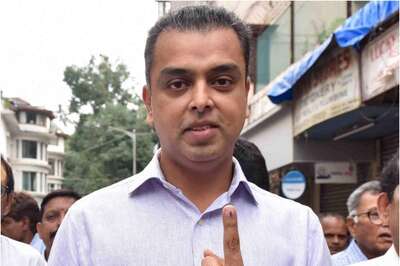

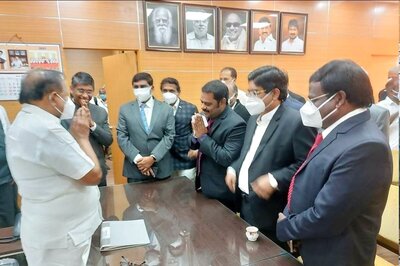
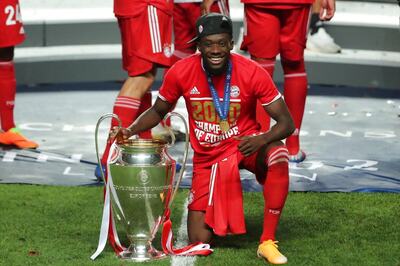


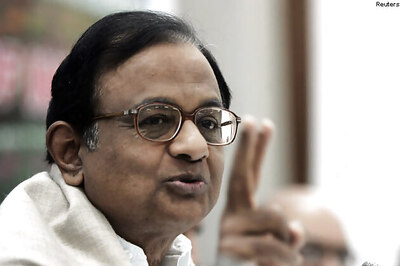
Comments
0 comment